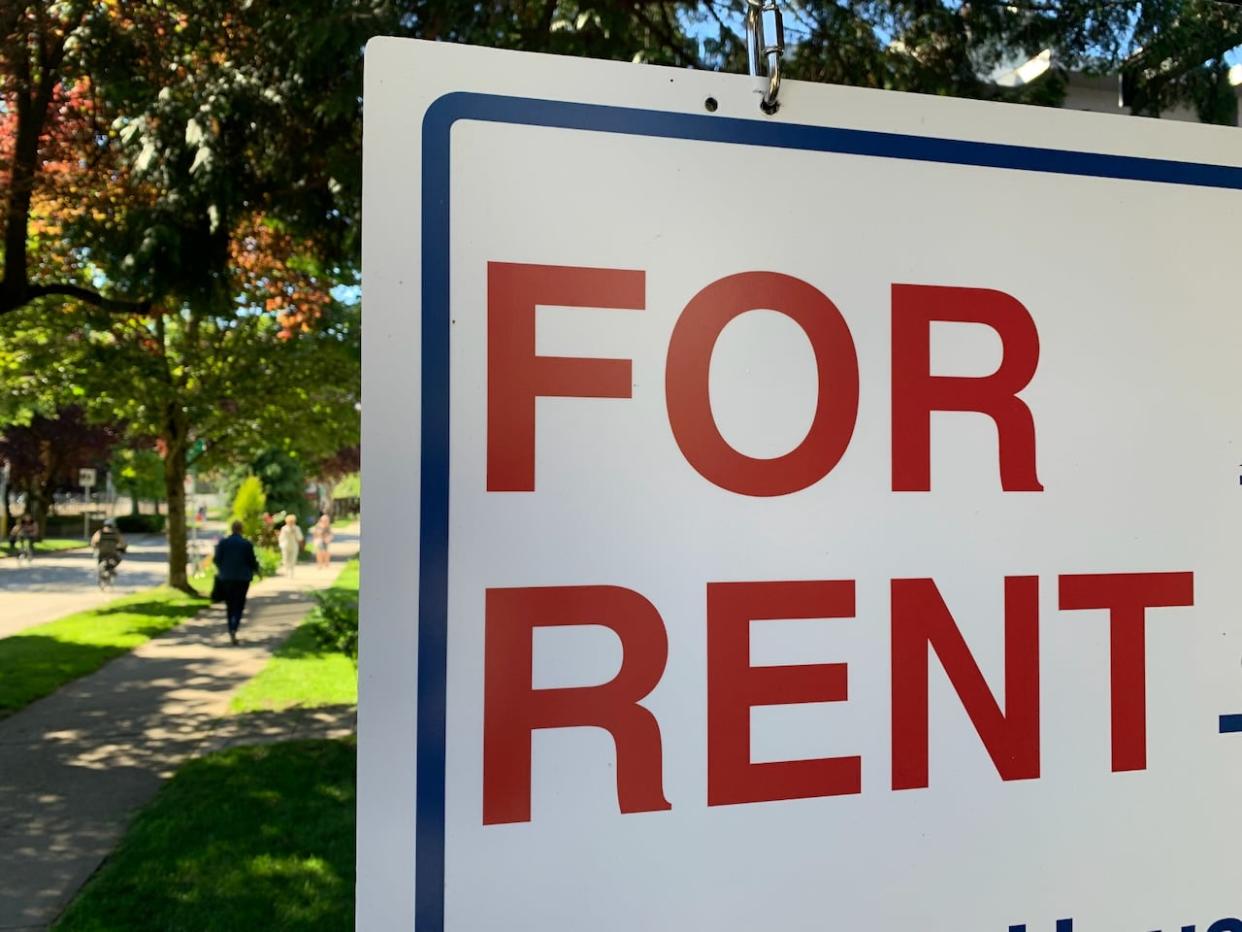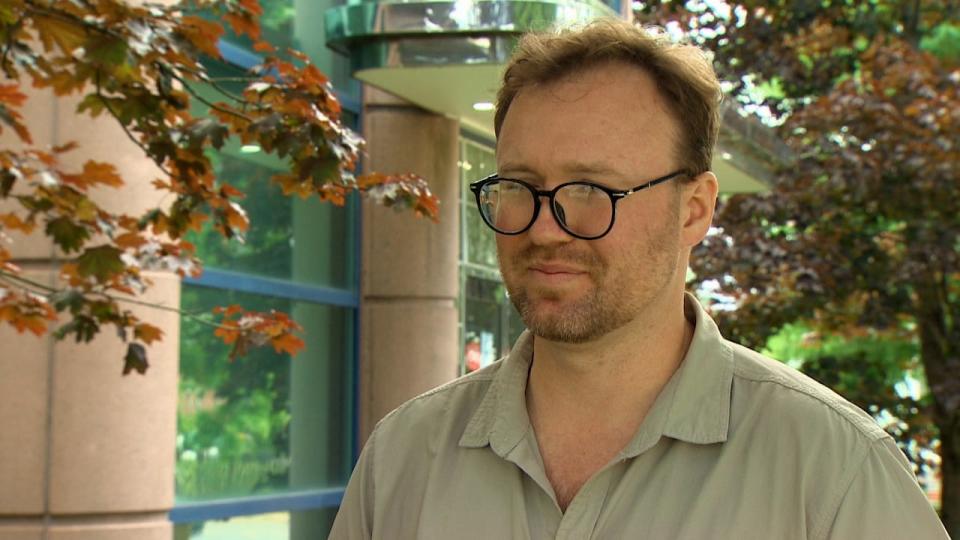Rents in Nova Scotia are rising faster than any time since the 1970s

The cost of rental housing is rising faster in Nova Scotia than at any time since publicly available data collection began in 1979, according to the latest consumer price index numbers.
The province's rent inflation rate of 14.1 per cent is the highest in Canada, and the third-highest on record. The spike comes at a time when Halifax's homelessness rate has doubled and its vacancy rate has fallen to the second-lowest in the country.
Five years ago, rents in Nova Scotia were rising at a rate of around one per cent, and they were falling as recently as January 2021. Rental costs have climbed since then, despite the provincial rent rent cap.
Tenants and landlords say the current conditions show the province's rent-control system is flawed. But the two sides want vastly different changes, and both say they're being affected by rising costs.
"We have a patchwork system of rent control here in Nova Scotia," said Mark Culligan, a community legal worker with Dalhousie Legal Aid Service in Halifax. "It was built as an emergency measure and now it's breaking down even more."
The temporary two per cent cap was implemented by the previous Liberal government in 2020 to protect renters during the COVID-19 pandemic. The current PC government campaigned against rent controls but extended the cap until 2025 in response to the housing crisis, though the cap will increase to five per cent in January.

Andrew Warnica says landlords are experiencing unprecedented costs. (Galen McRae/CBC)
Small landlords said the cap means they can't recoup their costs as things like heating costs and mortgage payments rise.
Andrew Warnica has been a landlord in Halifax for almost 20 years. He's seen drastic cost increases in the last few years, he said, to the point that he's now losing money on one of his three rental units and breaking even on the other two.
"We've had long-term tenants. They're happy. They want to stay. They've got a very, very affordable unit," Warnica said. "But all of a sudden instead of making ... $300 a month, we're losing maybe thousands of dollars a month."
Warnica said he charges between $850 and $950 for each unit in a triplex he owns. But his mortgage payments have increased to $2,100, his property tax and insurance are $600 and heating oil is now around $1,000 monthly.
Market rent climbing
Allison Rouillard and her husband have been renting part of a duplex in Westphal, a community outside Dartmouth, N.S., for more than 10 years. They pay $950 per month in their unit, which is rent-controlled because they have a lease.
When Rouillard's landlord told her he was selling the home because he was no longer breaking even, she began searching for a new place to live.
Even though she and her husband make close to $100,000 per year together, they can't afford current market rent. They're seeing one-bedroom apartments for $2,000 and up, she said.

Allison Rouillard says she and her husband make close to $100,000 annually combined, but can't afford current market rent in the Halifax area. (Galen McRae/CBC)
"It's not affordable for a lot of people. A lot of people have other bills to pay."
Rouillard and her husband decided to move in with her mother while they save up to buy an RV to live in year-round. But she said she counts herself lucky that she isn't one of the more than 200 people in Halifax sleeping outside.
Rouillard said she doesn't blame her landlord for trying to make ends meet, but she wants to see more action from the government.
"We're all one paycheque or one crisis away from being homeless ourselves," she said. "There's a lot of people out there that don't have a voice that if people would speak out and do something, maybe the government will finally start to listen to us."
Holes in legislation
Culligan said the reason rental costs are ballooning despite the rent cap is that the legislation doesn't apply to new leases. So every time a new tenant signs a lease, the rent can be increased to whatever the market will allow.
He and other tenant advocates are calling for a right to renew on fixed-term leases, meaning tenants could not be turned over just because their lease expires. He also recommends moving to a system of rent control that ties rents to the unit, not the tenant, which PEI has done.

Mark Culligan says he sees a direct connection between flaws in the rent cap and increased homelessness. (Robert Guertin/CBC)
But many small landlords said they can't carry the financial burden of providing affordable housing, and the Investment Property Owners Association of Nova Scotia has long been calling for changes to the province's rent cap, or its complete removal.
"When you can't increase your revenue and your expenses keep going up, when you have the opportunity when a place goes vacant to increase that one much more than you would be able to normally, of course people are going to do that," Warnica said.

Colton LeBlanc is minister of Service Nova Scotia, which oversees the Residential Tenancies Program. (Robert Short/CBC)
He and other landlords are calling for a system to permit increases above the rent cap, similar to what Ontario has in place. There, landlords can apply to boost the rent they charge but they need to prove their cost increases.
Province isn't considering changes
Colton LeBlanc, the minister in charge of the Residential Tenancies Program, declined to be interviewed. But his department sent a statement that said it is aware the rent cap has put an additional burden on some landlords due to inflation, and it's also aware of fixed-term leases being used strategically for "unintended purposes."
However, spokesperson Geoff Tobin said the department isn't considering changes to the rent-cap legislation.
"The rent cap was designed as a temporary solution while we build up our housing supply across the province," he said. "As a result, no permanent measures — such as enabling landlords to apply to charge rent above the rent cap — were created."
MORE TOP STORIES


